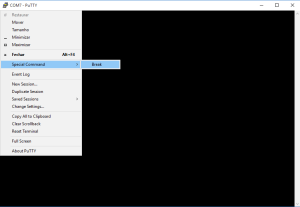
Cookies may be used to display advertisements or to collect statistics about the use of the Corelan website. When you log in, we will also set up several cookies to save your login information and your screen display choices. This cookie contains no personal data and is discarded when you close your browser. You do not have to accept cookies to be able to use the publicly accessible parts of Corelan Websites. If you have an account and you log in to this site, we will set a temporary cookie to determine if your browser accepts cookies. When using the Corelan Website, cookies may possible be used. If you decide to get your information removed, you understand and accept that you will lose all access to any resources that require the use of these personal details, such as parts of the website that require authentication.į. Personal details by written request to Corelan. You have the right to consult, correct, adjust or have removed your

It is our goal to reasonably protect the personal information madeĮ. Provide you with the requested information or services, or for any longer periodĭ. We will only keep your personal information for as long as is required to Your personal information will not be shared with third parties, but it may be used for authentication, support & marketing purposes in relation with services provided by Corelan.Ĭ. The purpose of making available to you the requested information or services. All personal information made available by you will be treated solely for Such case your personal information shall be treated in accordance with the General Data Protection Regulation and any amendments hereof.ī. In certain cases you may however be requested to submit personal information. Most information accessible on or via theĬorelan Website is available without the need to provide personal information. The part of the series that specifically addresses DRS is: A. If you have the time, I would recommend reading a 4-part blog series I wrote on how to use Linux for many useful CCM tasks (DRS being one): (the series also talks about how to setup / install some Linux distro's) Typically, I would configure this in a Linux server. With that, I am going to recommend looking into using the SFTP (a subset of SSH) portion of OpenSSH.

For me, I look for a solution that I can, 'set and forget'. My experience is that it fails often and needs restarted frequently (not to mention it is no longer supported by the original author). While FreeFTPd does work, it is in my opinion, not a great choice.

I only draw distinction because they are two very different protocols and have unique uses within CUCM. Firstly, you'll want to note that for CUCM's DRS backup capabilities you'll be using SFTP, not TFTP.


 0 kommentar(er)
0 kommentar(er)
